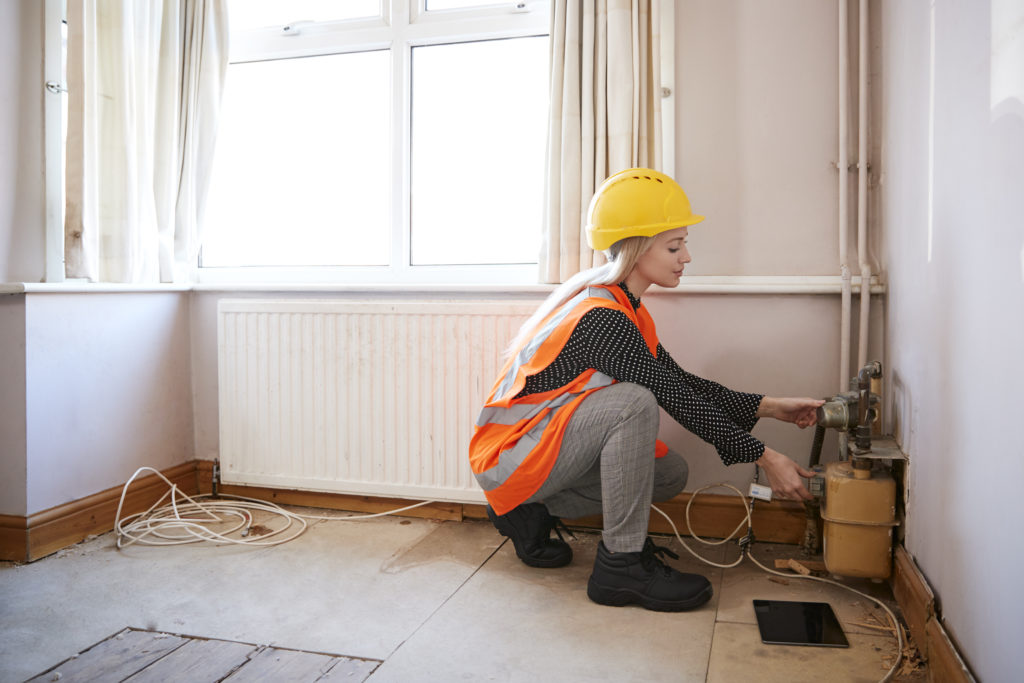Everyone has a right to feel safe in their home, including those renting privately. Private landlord’s have a duty of care to uphold for their rental properties just as renters have a duty of care to look after the property. However, the safety of the property falls towards the landlord. What are the private landlord’s safety responsibilities that you should know when renting in the UK.
Legislation
It is a landlord’s legal responsibility, under The Landlords and Tenants Act 1985, to ensure properties are safe to rent out and live in, this includes having annual gas safety checks and electrical safety checks, and ensuring the property is fitted with smoke alarms.
Gas, Electrics and Fire all have different guidelines and legislation in place to ensure that privately rented homes are safe, failure to comply with these legislation’s can result in prosecution, invalidation of insurance and also possibly, fines. It’s important that landlords are aware of their legal responsibilities and vigilant in upholding safety standards in their privately rented homes.
The safety of your property isn’t just to ensure the home is safe for tenants, but also so that properties are maintained and prevented from any damage or fire, which would ultimately cause a greater cost to repair.
Gas Safety
Landlords have three gas responsibilities when letting a property: maintenance of gas appliances, gas safety checks and keeping a record of checks. Although not a requirement, Gas Safe Register recommends making sure your tenants know where and how to turn the gas main off, in case of an emergency.

Private landlord’s must ensure that the gas equipment within the property is safely installed and regularly serviced by a Gas Safe registered engineer. Most importantly landlords are required to have an annual gas safety check carried out on every appliance and flue, and they are required by law to ensure the tenants have a copy of the gas safety check either before you move in or 28 days after the check has been carried out.
It is important that landlords use a Gas Safe Registered engineer to carry out work on their property to ensure regulations are met and safe installation and checks are carried out too. This is not a legal requirement, but still a strong recommendation from Gas Safe.
As of October 2015, the regulations now require landlords to install smoke alarms in their existing properties and also carbon monoxide alarms in any rooms that contain a solid fuel burning appliance. This would cover use of coal and log burning stoves, open fires and Aga’s, but does not cover gas and oil boilers.
Electrical Safety
Half of all UK house fires are caused by electrical faults, which is why is important for landlords to carry out regular electrical safety checks on their properties. Landlords are by law required to ensure that the electrical system in the property is safe when tenants move in and then maintained throughout the tenancy, and they must also ensure that if any appliances are supplied within the property, that they are safe to use also and have been checked appropriately (PAT Testing).
Currently there are no laws in place to ensure regular electrical safety checks are carried out in privately rented properties, like there are for annual gas safety checks, and it is only recommended that you have an Electrical Installation Condition Report (EICR) carried out on rental properties every five years, or at the change of tenancy.
However, that is due to change soon as five yearly checks EICRs are set to be enforced by the government after a lengthy review in January 2019. In Scotland, it has been the law since 2015 for five yearly checks to take place on privately rented properties and provide proof or reports (such as EICRs).
EICRs have been designed to test the overall condition of the installation and report on any faults or damages within the system. These regular inspections will help ensure the safety of both the home for the tenants and the electrical system for the building too.
Just like a gas safety check requires a Gas Safe registered engineer to complete them, landlords will also be required to hire a competent electrician to carry out all electrical inspections when they law comes into force. Until then it is a strong recommendation that private landlord’s have an EICR carried out on their property every five years.
Fire Safety
Due to recent events with Grenfell tower, fire safety concerns for tenants have naturally increased and it has never been more important for landlords to understand their responsibilities when it comes to fire safety and ensuring tenants are safe and the property is well protected against any fire risks.

As of 2015, landlords are required to install at least one smoke alarm on every floor of their properties. It’s important to note that different types of dwellings will have different types of legislation that apply, in order to ensure a minimum protection.
If you supply any furniture within the rental home, you are required to make sure that they are fire safe and you must check appropriate access for escape routes. Above all, you should ensure that you have done everything possible and necessary to comply with fire safety regulations and protect your tenants in case a fire does break out. If you are unsure of your fire safety responsibilities, we recommend consulting your local Fire Rescue Service.
This article about “Private Landlord’s safety responsibilities” was written for Housing Hand – the Award-Winning UK Rent Guarantor Service by Annie Button. For more information on how you can work with Housing Hand, visit housinghand.co.uk or call 02072052625 and select option 2.







